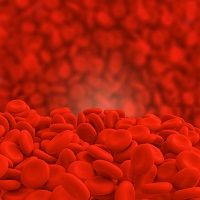Article
Anticoagulants: New Antidote Passes Test
Author(s):

An investigational drug shows promise in sustained reversal of the anticoagulant effect of the Factor Xa inhibitor apixaban (Eliquis/Bristol-Myers Squibb).
According to a joint news release from Bristol-Myers Squibb, Pfizer, and Portola Pharmaceuticals, full results from the second part of the phase 3 Annexa study, showed that andexanet alfa, an investigational antidote, reversed the anti-coagulation activity of apixaban.
Andexanet alfa is an investigational antidote. The US Food and Drug Administration has given it “breakthrough therapy” status.
It is administered as an intravenous bolus followed by a continuous 2-hour infusion.
The full data were presented today at the International Society on Thrombosis and Haemostasis Congress in Toronto, Canada.
According to Portola’s John Curnutte, MD, PhD, the drug “can rapidly reverse anticoagulant activity for a short or sustained period of time,” and still allow anticoagulant activity to be reinitiated once the infusion is discontinued.
In the study, 33 healthy volunteers were given apixaban 5 mg twice daily for 4 days and then randomized to get the drug in a 400 mg IV bolus or placebo.
In a second part of the study, 31 healthy volunteers got apixaban 5 g twice daily for 4 days and were then randomized to get the same bolus followed by a continuous infusion of 4 mg/min for 2 hours or placebo.
The results showed the bolus achieved a 93.5% reversal of anticoagulation. After the 2-hour infusion, that reversal effect remained at 92.7% of the anticoagulant activity.
Additionally, clotting activity returned to normal after the infusion ended.
The antidote is important for patients taking apixaban for several reasons, including those at risk for clots because they have atrial fibrillation, patients who have had hip or knee replacement, or because they have deep vein thrombosis or a pulmonary embolism.
Risks include bleeding, and development of epidural or spinal hematomas in patients getting spinal or epidural anesthesia.
The drug’s safety in patient with prosthetic heart valves has not been studied.


